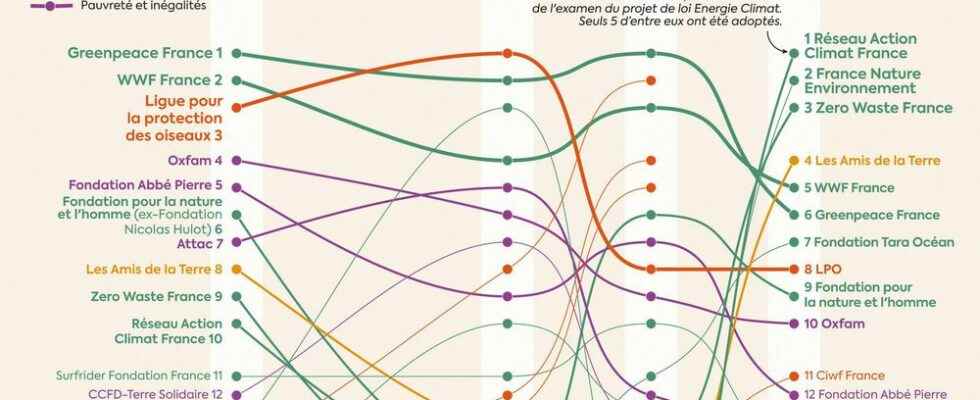In the corridors of ministries, we meet their representatives at least as often as McKinsey consultants. And behind the scenes of parliamentary work, their “turnkey” amendments enrich or quietly correct the bills submitted to the vote of our elected officials… For years, non-governmental organizations (NGOs) have been at the heart of the debate public, which they animate by defending their causes – and that’s good. But they also happen to orient it, to format it. In a word, to influence it, without light always being shed on their objectives, their methods, their relays or their financing.
The excessive place occupied in the state apparatus by consulting firms led the senators to form a commission of inquiry, and aroused a virulent controversy on the eve of the last presidential election. More recently, in the same spirit, the pseudo-revelations of the “Uber Files” have denounced the lobbying exercised by the Californian giant, to facilitate its breakthrough on the VTC market. Surprisingly, we never emphasize the very effective role played in this same field by certain NGOs: the public authorities consult them, co-construct certain texts with them, parliamentarians digest and recycle their arguments with relish, the media open their antennas wide to them. and their columns, social networks drink in their cries of alarm…
This diffuse, multiple influence, no one, until now, had endeavored to measure it or to characterize it. Exclusively for L’Express, this work was carried out by the agency Plead, which specializes in consulting in strategic communication, media relations and public affairs. For a year, its teams have listed, quantified and analyzed the communication of NGOs aimed at elected officials, the media and social networks (Twitter, Instagram, Facebook, YouTube, LinkedIn), to establish the very first ranking of the most influential NGOs. of France.
From Greenpeace to the League for the Protection of Birds
The methodology is empirical (the monitoring work is based solely on available public data) and is not exhaustive, since the scope of this study is limited to so-called “advocacy” NGOs, intervening “dedicated or episodically” on the environmental, social and animal welfare themes. You will therefore not find in this barometer the names of well-known organisations, such as Doctors Without Borders or Handicap International. This does not prevent it from being a valuable tool for identifying the most active NGOs, their preferred means of action, and sometimes shedding light on an unsuspected influence, such as that of the League for the Protection of Birds (LPO), which owes its third place in the general ranking, to its influence in the media, and especially with the regional daily press. Or that of the Climate Action Network, winner of the parliamentary influence ranking, past master in the art of proposing (and having adopted) amendments…
All rankings combined, we will hardly be surprised to find Greenpeace on the first step of the podium: more than fifty years after its creation, the ecological NGO benefits from an unparalleled media aura, powerful relays on social networks, in the national and audiovisual press. Its fights, Greenpeace leads them also, of course, through its “punch” operations, its true trademark. Failing to advance the debate, these spectacular happenings always make them, in the collective unconscious, the spearhead of the ecological battle.
The Express
By publishing with Plead this first ranking of the most influential NGOs, our intention is in no way to put these organizations on trial, actors in their own right in our political, social and economic life. Everyone knows that the most active NGOs on the theme of the environment have largely guided and inspired the debates during the citizens’ climate convention ; it is also well known that the Zero Waste association has “held the pen” and partly drafted the bill against waste and for a circular economy. After all why not ? These associations have expertise that public decision-makers cannot always rely on. It is still necessary to assume this work behind the scenes, and to ensure that the defense of their particular interests is never done to the detriment of the general interest. This requires a better understanding of these militant practices which do not always rhyme with transparency.
